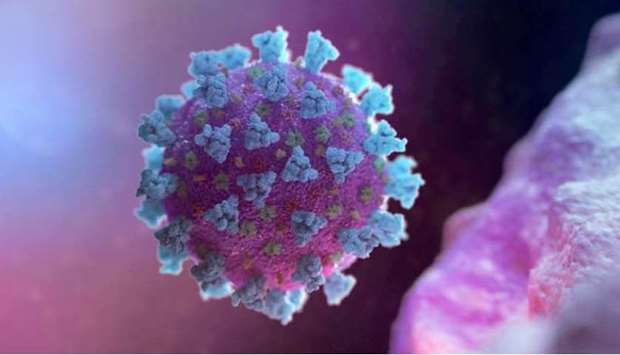Fears mounted yesterday that a highly-infectious new coronavirus (Covid-19) strain was pushing its way into Europe as the world brought the shutters down to contain the new Omicron variant.
Britain confirmed its first two infections and suspected new cases emerged in Germany and the Czech Republic, while Dutch authorities quarantined 61 passengers from South Africa who tested positive for Covid-19.
South Africa complained it was being “punished” with air travel bans for first detecting the strain, which the World Health Organisation (WHO) has termed a “variant of concern”.
South Korea, Australia and Thailand joined the United States, Brazil, Canada and a host of other countries around the world restricting travel from the region, fearing a major setback to global efforts against the pandemic.
Scientists are racing to determine the threat posed by the heavily mutated strain, which is more transmissible than the dominant Delta variant, and whether it can evade existing vaccines.
The virus has already slipped through the net with cases in Europe and Hong Kong and Israel.
Both cases in Britain were linked to travel from southern Africa, and in response the government expanded travel restrictions on the region.
Belgium said on Friday that it had detected the first announced infection in an unvaccinated person returning from abroad.
Germany’s suspect case, meanwhile, was fully jabbed.
“The Omicron variant has with strong likelihood already arrived in Germany,” tweeted Kai Klose, social affairs minister in the western state of Hesse.
The neighbouring Czech Republic was carrying out further tests on a woman who had travelled from Namibia and was suspected to have the new variant, Prime Minister Andrej Babis said.
The Netherlands meanwhile found around one in 10 – 61 out of 600 – people who had arrived at Schiphol airport on Friday from South Africa were positive for Covid-19.
Those infected, who flew in on two KLM flights that took off before the Dutch government announced a ban on travellers from the region, were being kept quarantined in a hotel.
“The positive test results will be examined as soon as possible to determine whether this concerns the new worrisome variant,” the Dutch Health Authority said.
The WHO said it could take several weeks to understand the variant, which was initially known as B.1.1.529, and cautioned against travel curbs while scientific evidence remains scant.
US President Joe Biden meanwhile said that richer countries should donate more Covid-19 vaccines and give up intellectual property protections to manufacture more doses worldwide.
“The news about this new variant should make clearer than ever why this pandemic will not end until we have global vaccinations,” he said.
However, with memories still fresh of the way global air travel helped the spread of Covid-19 after it first emerged in the Chinese city of Wuhan in late 2019, countries clamped down swiftly.
Australia and Belgium became the latest to act, banning all flights from nine southern African countries.
South Korea and Thailand restricted flights from eight countries, as did the United States, Brazil, Canada and Saudi Arabia.
EU officials agreed in an emergency meeting to urge all 27 nations in the bloc to restrict travel from southern Africa, with many members having already done so.
The World Trade Organisation called off its ministerial conference, its biggest gathering in four years, at the last minute on Friday due to the new variant.
Vaccine manufacturers have held out hope that they can modify current vaccines to target the Omicron variant.
Germany’s BioNTech and US drugmaker Pfizer have said that they expect data “in two weeks at the latest” to show if their jab can be adjusted.
Moderna said it will develop a booster specific to the new variant.

